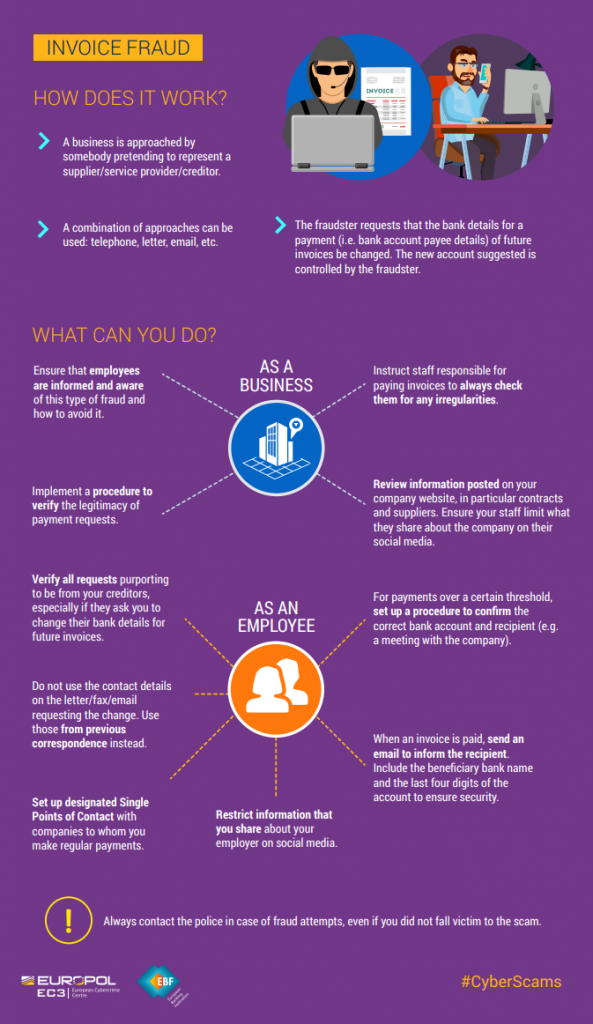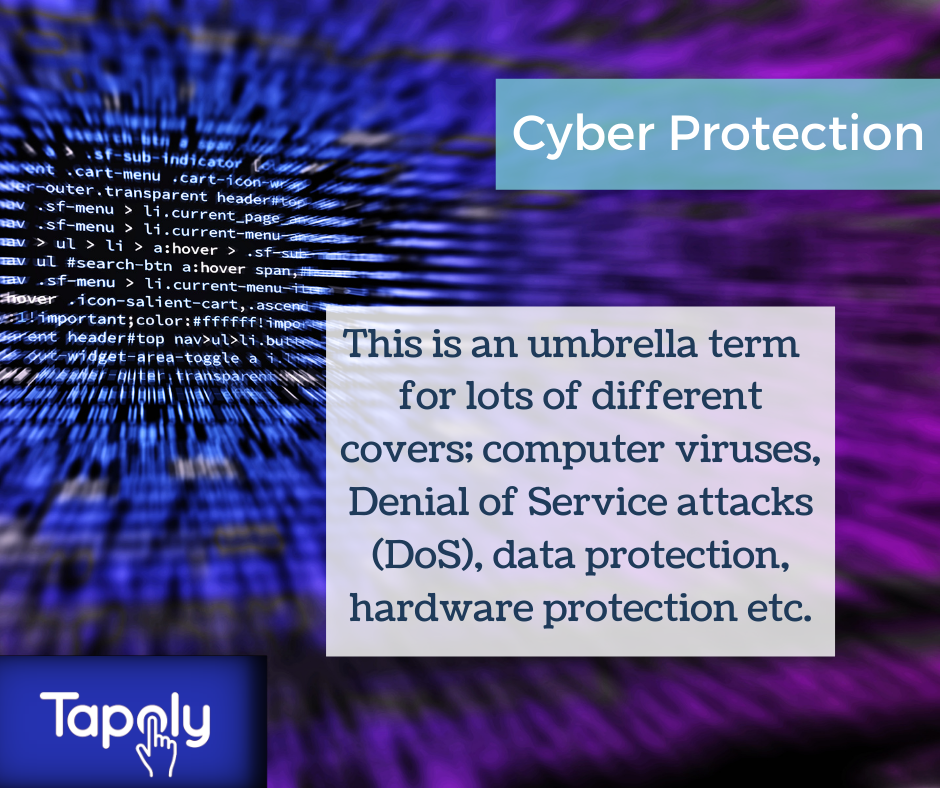Invoice fraud or scams are when someone poses as your supplier or customer and sends you an invoice or bill requesting a payment.
This type of cyber crime is also known as mandate fraud.
A Common Scenario
You get an invoice or email from one of your suppliers saying that they have changed their bank details.
It includes a forgery of the supplier’s invoice with the new bank details. To understand how they get to forge the invoice see our blog on hacking emails.
They want to get you acting fast without thinking it through or looking at the invoice too hard.
They may tell you that the invoice is overdue or threaten that non-payment will affect your credit rating.
It may even be for goods and services that haven’t been ordered or received but the supplier matches.
In fact, the invoice is fake!
What is the playbook?
In the worst case, the fraudsters time an invoice just before you expect the real one.
They may have an email ‘conversation’ with you regarding the payment details to distract you.
You may only realise you’ve been ‘had’ when the real supplier asks where their payment is!
Hi SMEs, Big Tip – AI has made invoices more realistic!
GAI robot
Expect a fraud invoice to be almost identical (sometimes just a few minor details like spelling mistakes or no VAT details) and check all you invoices very carefully.
If it happens to you:
- Act fast: If it’s the same day, call your bank and block the transaction. Failing that get them to try and stop it at the other end of the payment’s pathway.
- The longer you wait, the less likely you are to be reimbursed. Make sure that if you have paid a suspicious invoice, you contact your bank immediately on their fraud helpline.
- Report the incident to Action Fraud – the police’s national fraud and cyber-crime reporting centre – even if the fraudulent attack has failed. Call 0300 123 2040 or file a report at actionfraud.police.uk.
Is this all for real?
The Financial Ombudsman Service provides a real life scenario.
Bilal came to us for help following a complaint about a scam. He thought he was paying a supplier but instead had paid a fraudster who had accessed the supplier’s email account and intercepted the email chain with Bilal. Find out what happened and what we said.
What happened?
Read all about it on the FOS Website
Protect Yourself
ALWAYS confirm or check account details in person or on a trusted phone number, especially if they’ve recently changed.
Check out this from Europol.

You can download the pdf file from their website.
Insurance can help.
There are many types of cyber insurance which can help protect your business.

